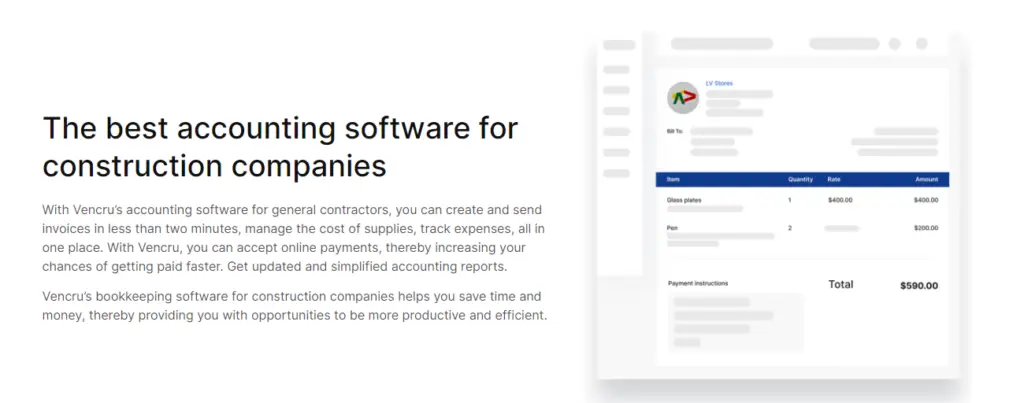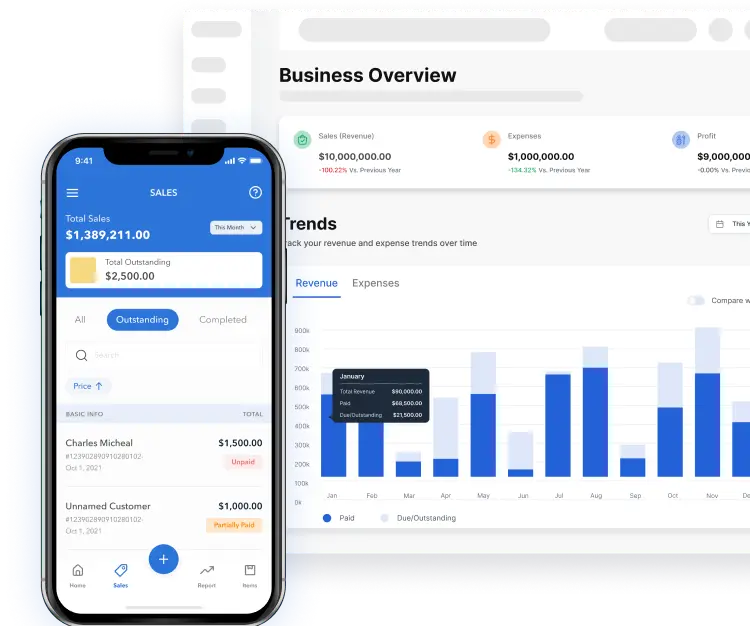Accurate inventory forecasting is critical for project completion on schedule and under budget in the construction industry. However, many construction managers and business owners struggle to effectively forecast inventory requirements, resulting in project delays, increased costs, and resource waste.
In this blog post, we’ll explore five strategies to help improve inventory forecasting for construction projects, empowering construction professionals to optimize their operations and enhance project efficiency.

Importance of Accurate Inventory Forecasting:
Inventory forecasting offers several benefits in the execution of projects. By accurately predicting inventory needs, construction managers can:
- Eliminate Costly Delays: Ensure materials, equipment, and supplies are available when needed to keep projects on schedule.
- Reduce Project Costs: Avoid unnecessary spending on excess inventory or last-minute purchases.
- Enhance Visibility and Control: Gain a clear picture of inventory levels, allowing for informed decision-making throughout the project lifecycle.
Common Challenges in Inventory Forecasting for Construction:
Before delving into the strategies for improving inventory forecasting, let’s first identify some common challenges construction professionals face. These challenges may include:
- Supply Chain Disruptions: Unforeseen events can disrupt the flow of materials, impacting project timelines.
- Inaccurate Demand Forecasting: Underestimating or overestimating material needs can lead to shortages or excessive inventory.
- Limited Inventory Tracking Systems: Manual methods or outdated software can hinder accurate inventory tracking and forecasting.
Addressing these challenges is key to improving inventory forecasting accuracy and project efficiency.
5 Strategies to Improve Inventory Forecasting:
Here are five strategies to improve inventory forecasting and optimize construction project management:
- Utilize Advanced Inventory Management Software
- Implement Data-Driven Forecasting Techniques
- Enhance Communication and Collaboration with Suppliers
- Regularly Monitor Inventory Levels and Usage Patterns
- Invest in Employee Training and Development
1. Utilize Advanced Inventory Management Software

Advanced inventory management software is one of the most efficient ways to improve inventory forecasting. This specialized software provides a variety of benefits, including:
- Real-time tracking: monitor inventory levels and movement throughout the supply chain to ensure materials are always available.
- Accounting integration: streamlines financial processes and enhances overall project visibility by syncing inventory data with accounting records. By syncing inventory data with accounting records, construction professionals can accurately track costs, generate financial reports, and make data-driven decisions.
- Mobile accessibility: allows construction professionals to access inventory data and manage materials from anywhere, at any time. This flexibility is precious for construction sites where mobility is essential.
Related Read: Best cloud accounting software for a construction company
2. Implement Data-Driven Forecasting Techniques

Data analysis is a powerful tool for forecasting inventory needs accurately. By analyzing historical data and trends, construction professionals can more effectively identify patterns and predict future demand. Some key data-driven forecasting techniques include:
- Trend Analysis: Analyzing historical data to identify trends and patterns in inventory usage, allowing construction professionals to forecast future demand based on past performance.
- Demand Forecasting Models: Using statistical models and algorithms to predict future demand based on project timelines, seasonality, and market trends.
- Predictive Analytics: Leveraging predictive analytics tools to forecast inventory needs based on various variables, including market conditions, economic indicators, and supplier performance.
Related Read: 4 Practices for Accurate Inventory Tracking in Construction
3. Enhance Communication and Collaboration with Suppliers

Effective communication and collaboration with suppliers are essential for ensuring timely delivery of materials. Construction professionals can enhance communication with suppliers by:
- Establishing Clear Communication Channels: Implement regular meetings, email updates, and phone calls to ensure all parties are aligned on project requirements and timelines.
- Proactive Demand Sharing: Sharing forecasted demand with suppliers enables better anticipation of inventory needs and streamlined production planning, minimizing supply chain disruptions and delays.
- Negotiating Favorable Terms: Negotiate volume discounts, payment terms, and delivery schedules within the supplier contracts. This secures the most competitive pricing and guarantees timely material delivery.
4. Regularly Monitor Inventory Levels and Usage Patterns

Monitoring inventory levels and usage patterns is essential for identifying potential shortages or surpluses. Construction professionals can implement the following strategies to monitor inventory effectively:
- Implementing Automated Tracking Systems: Implementing automated tracking systems, such as barcode scanners, allows construction professionals to track inventory movement in real-time and identify potential issues before they escalate.
- Conducting Regular Inventory Audits: This helps identify discrepancies between physical inventory and recorded inventory levels. By reconciling these discrepancies promptly, construction professionals can ensure the accuracy of their inventory records and minimize the risk of stockouts or overstocking.
Related Read: Budgeting: 7 Ways to Track Inventory Costs in Construction
5. Invest in Employee Training and Development

Educating employees on inventory management best practices is crucial for improving forecasting accuracy. Construction professionals can invest in employee training and development by:
- Providing Training Programs: Offer training programs and workshops on inventory management best practices, data analysis techniques, and software usage to employees involved in inventory forecasting and management.
- Improving Employee Skills: Investing in employees’ skills and knowledge improves their ability to forecast inventory needs accurately and effectively manage inventory levels. This, in turn, enhances overall project efficiency and reduces the risk of costly delays or disruptions.
By implementing these five strategies, construction professionals can improve inventory forecasting accuracy, optimize project management processes, and achieve greater success in their construction projects.
Improve Inventory Tracking with Vencru

Improving inventory forecasting is crucial for construction professionals looking to optimize their operations and enhance project efficiency. Take advantage of Vencru’s inventory management software to streamline your inventory management processes, minimize project delays, and ultimately achieve greater success in construction projects.
Take action today to improve your construction inventory forecasting and unlock new opportunities for growth and success with Vencru- Book a demo today.






